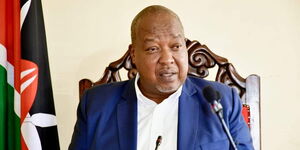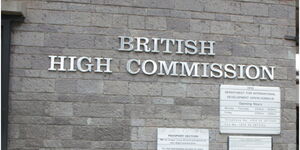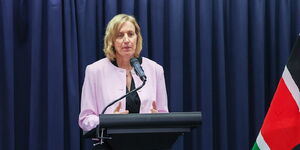The government has moved to quell fears of an imminent drug shortage by dismissing claims that over 21,000 essential medicines have been blocked from entering the Kenyan market.
On Sunday, October 5, the government, in a statement by the Pharmacy and Poisons Board (PPB), described the reports as deceptive and intended to incite public fear.
The PPB, which serves as the country's National Medicines Regulatory Authority, emphasised that there was no blockage of medicines and that essential drugs remained available for local manufacture and importation.
According to the board, approximately 9,000 registered medical products which meet all required safety and quality standards are currently active and accessible across the country.
"Contrary to these falsehoods, there is no blockade of medicines in Kenya. The Board has duly retained approximately 9,000 registered medical products that meet national and international standards for safety, efficacy, and quality. These products remain available for local manufacture, importation, and distribution," a statement from the PPB read.
The clarification followed online reports alleging that recent changes by PPB had halted the importation of key medication, including insulin, cancer therapies, HIV treatments and antibiotics, heightening fears of nationwide shortages.
In the wake of the report, experts warned that a shortage could leave over 1.5 million Kenyans with diabetes and millions more with cancer and other chronic conditions in trouble.
But the PPB, in a rejoinder, clarified that the exercise alluded to in the report was a routine regulatory renewal process which is required under the Pharmacy and Poisons (Registration of Health Products and Technologies) Rules, 2022.
The rules stipulate that every marketing authorisation must be renewed every five years to maintain quality control.
“All Market Authorisation Holders were advised to renew their registrations by 31 December 2025. This is standard global regulatory practice – not a ban or suspension,” PPB explained.
Further, the board pointed an accusing finger at what it described as "unscrupulous individuals and cartels" who were resisting efforts to crack down on illegal importers.
Previously, industry groups raised concerns over PPB's renewal timelines, warning of disruptions if the licences of thousands of products are allowed to lapse. PPB, however, insist the system is still operational.
“The Pharmacy and Poisons Board remains committed to ensuring continuous access to safe, quality, and effective medical products for the people of Kenya. We urge everyone to disregard misinformation and to work with us in safeguarding the health of our nation,” the statement concluded.












